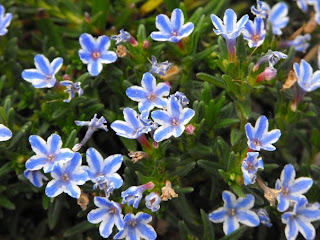
I exist in the past and in a future yet to come—but rarely in the present.
Such has been the affliction of my life: the clearest, most succinct expression of my condition. This is wabi. Now I possess vocabulary for “it.”
Wabi is the Japanese for that feeling of refined melancholy, of solitude, that relates fundamentally to the transience of life. To experience wabi is to find beauty in imperfection, to accept—and, importantly, appreciate—the asymmetries and dissonances, the disjunctures and impurities embedded in that cycle of birth, growth, maturation, decline, death, and decay.
Wabi has come to accompany the Japanese sabi to work together as a conceptual whole. If wabi connects us to the florescence of the past and the pregnancy of the future in a kind of teetering balance that may at any time unexpectedly hurtle us towards one over the other, sabi roots us in the experience of passing time itself by bearing (and displaying) the weight of time in cracks and tarnishes, rusts and decays.
Nature giveth, and nature taketh away. Mortality is both the cost of and the gift to precious life.
Gardeners know all too well that  transience ranks as one of the key, if not the primary, feature of (controlling, er, I mean gardening) endeavors. Forty-two inches of snow in northern Delaware less than two months ago caused profound damage throughout the garden. My rosemary bush, which thrived for over two years, is now a mere fraction of its previous glory, its remainder visibly struggling for life. Blue star lithodora, a lovely carpet of deep, rich evergreen punctuated by ethereal, nearly glow-in-the-dark florets, was reduced to twigs, barely producing bits of green here and there. The boxwoods lining my front stairwell were split down the middle. Lena’s Scotch Broom needed to be tied together to stand upright again, its branches never recovered from the weight of nearly four feet of snow pinning her down for over a month. Two Sum-and-Substance Hostas have thus far failed to poke above the soil, though all of their brethren and cousins have.
transience ranks as one of the key, if not the primary, feature of (controlling, er, I mean gardening) endeavors. Forty-two inches of snow in northern Delaware less than two months ago caused profound damage throughout the garden. My rosemary bush, which thrived for over two years, is now a mere fraction of its previous glory, its remainder visibly struggling for life. Blue star lithodora, a lovely carpet of deep, rich evergreen punctuated by ethereal, nearly glow-in-the-dark florets, was reduced to twigs, barely producing bits of green here and there. The boxwoods lining my front stairwell were split down the middle. Lena’s Scotch Broom needed to be tied together to stand upright again, its branches never recovered from the weight of nearly four feet of snow pinning her down for over a month. Two Sum-and-Substance Hostas have thus far failed to poke above the soil, though all of their brethren and cousins have.
Such recurring seasonal experiences with destruction, decay, and mortality fail to compel comfort or familiarity with this biological fact of life. We teeter backwards toward the past. We recall. We access memories. We process. We take a moment—but not a moment in the present (time inexorably marches onwards), but a moment stuck in multiple pasts. We mourn the loss of our beloveds. Mortality proves a cost to life—sometimes and in some situations an unfathomable cost.
Yet mortality proves a Janus-faced gift: for at one almost inappreciable, unexpected moment somewhere in the depths of confronting the transience and fickleness of life, when sabi infuses our very Being, we apprehend both the magnitude of life and death, able to look ahead to the pregnant future, armed with the knowledge and the memories born from the past. This is wabi.
Written in loving memory of Viet’s aunt, Tata Loan, who died on 7 April 2010.
Give the Sum & Substance hosta time...the larger ones tend to emerge later!
ReplyDeleteThanks for that tremendous dose of optimism, Melinda!! I noticed my "Big Blue" Hosta (I refuse to use its nursery name of "Big Daddy") just poked through the soil, as did my lovely June Plantain, whereas all the others are busying themselves with leafing out. Those certainly are large leaf hostas, so perhaps those two Sum & Substance ones will make a belated, welcome, dramatic appearance!
ReplyDelete